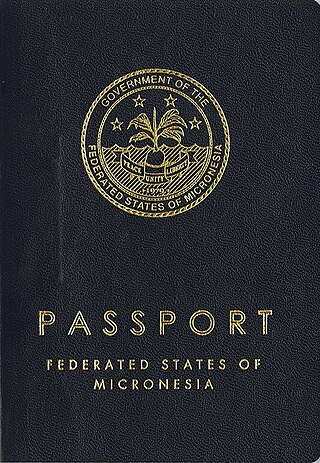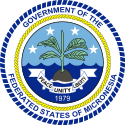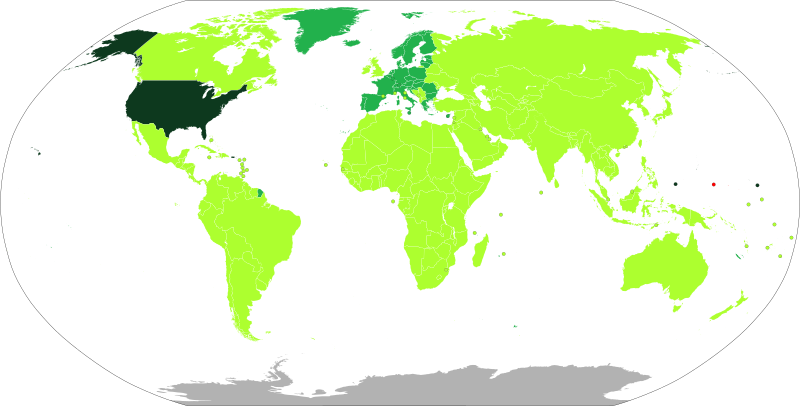
A visa is a conditional authorization granted by a polity to a foreigner that allows them to enter, remain within, or leave its territory. Visas typically include limits on the duration of the foreigner's stay, areas within the country they may enter, the dates they may enter, the number of permitted visits, or if the individual can work in the country in question. Visas are associated with the request for permission to enter a territory and thus are, in most countries, distinct from actual formal permission for an alien to enter and remain in the country. In each instance, a visa is subject to entry permission by an immigration official at the time of actual entry and can be revoked at any time. Visa evidence most commonly takes the form of a sticker endorsed in the applicant's passport or other travel document but may also exist electronically. Some countries no longer issue physical visa evidence, instead recording details only in immigration databases.
The Visa Waiver Program (VWP) is a program of the United States federal government that allows nationals of specific countries to travel to the United States for tourism, business, or while in transit for up to 90 days without having to obtain a visa. It applies to all fifty U.S. states, the District of Columbia, Puerto Rico, and the U.S. Virgin Islands, as well as to Guam and the Northern Mariana Islands, which also have an additional program with waivers for more nationalities; American Samoa has a similar but separate program.

Visitors to the United States must obtain a visa from one of the U.S. diplomatic missions, unless they come from one of the visa-exempt or Visa Waiver Program countries. The same rules apply for travel to all U.S. states, Washington, D.C., Puerto Rico and the U.S. Virgin Islands, as well as to Guam and the Northern Mariana Islands with additional waivers, while similar but separate rules apply to American Samoa.

The visa policy of the Schengen Area is a component within the wider area of freedom, security and justice policy of the European Union. It applies to the Schengen Area and to other EU member states except Ireland. The visa policy allows nationals of certain countries to enter the Schengen Area via air, land or sea without a visa for up to 90 days within any 180-day period. Nationals of certain other countries are required to have a visa to enter and, in some cases, transit though the Schengen area.

The visa policy of Canada requires that any foreign national wishing to enter Canada must obtain a temporary resident visa from one of the Canadian diplomatic missions, unless they hold a passport issued by one of the 54 eligible visa exempt countries and territories or proof of permanent residence in the United States.

Nationals of many countries may visit Brazil without a visa, while others must obtain a visa from one of the Brazilian diplomatic missions. For stays longer than 90 days or for employment in Brazil, all foreign nationals must have a visa or residency authorization.
Visa requirements for Australian passport holders are administrative entry restrictions by the authorities of other states placed on citizens of Australia entering with an Australian passport.

Visa requirements for Slovak citizens are administrative entry restrictions by the authorities of other states placed on citizens of Slovakia. As of May 2023, Slovak citizens had visa-free or visa on arrival access to 185 countries and territories, ranking the Slovak passport 9th in terms of travel freedom according to the Henley Passport Index.

All nationalities traveling to Samoa can enter visa free. All visitors must hold a passport valid for 6 months. All visitors must have a return or onward ticket, copy of a bank statement, no record of deportation from other countries, no health problems that would pose a risk to Samoa, no history of criminal charges.

Visitors to Tonga must obtain a visa unless they come from one of the visa exempt countries or countries eligible for a Visa Waiver on Arrival. Visa applications must be sent to the Principal Immigration Officer in Nuku'alofa. All visitors must hold a passport valid for 6 months.

Visitors to Solomon Islands must obtain a visa unless they come from one of the visa exempt countries or countries whose citizens are eligible for permit issued on arrival.
All visitors must hold a passport valid for 6 months.
The visa policy of the Philippines is governed by Commonwealth Act No. 613, also known as the Philippine Immigration Act, and by subsequent legislation amending it. The Act is jointly enforced by the Department of Foreign Affairs (DFA) and the Bureau of Immigration (BI). Visitors from 157 countries are permitted visa-free entry for periods ranging from 14 to 59 days.

The visa policy of the United Kingdom is the policy by which His Majesty's Government determines visa requirements for visitors to the United Kingdom, and the Crown dependencies of Guernsey, Jersey, and the Isle of Man and those seeking to work, study or reside there. All intended entrants must obtain a visa unless they are exempt.

The visa policy of Ireland is set by the Government of Ireland and determines visa requirements for foreign citizens. If someone other than a European Union, European Economic Area, Common Travel Area or Swiss citizen seeks entry to Ireland, they must be a national of a visa-exempt country or have a valid Irish visa issued by one of the Irish diplomatic missions around the world.
Visitors to the United Arab Emirates must obtain a visa prior to travel, unless they come from one of the visa-exempt countries.

Micronesian passports are the regular travel document issued by the Federated States of Micronesia to its citizens in order to enable them to travel outside the country.

Visitors to East Timor must obtain a visa, unless they come from one of the visa exempt countries.

Visitors to Jamaica must obtain a visa from one of the Jamaican diplomatic missions, or in certain cases from one of the United Kingdom diplomatic missions, unless they come from one of the 116 countries designated as visa-exempt countries or countries whose citizens may obtain a visa on arrival. Most Commonwealth Citizens can visit Jamaica for up to 180 days visa-free.

All foreign nationals visiting Seychelles are granted visa free access. However, they are required to obtain a Visitor's Permit on arrival unless exempt. The Visitor's Permit is issued free of charge and is initially valid for up to three months but it can be extended for a fee for a period of up to three months with further extensions not exceeding total period of twelve months. They must be in a possession of a valid passport, return or onward ticket, proof of accommodation and sufficient funds.
An electronic visa (E-Visa) and an electronic travel authorization are digital travel permits commonly required in conjunction with a valid passport for entry into specific jurisdictions. These electronic travel documents have gained prominence in the modern era of digital connectivity and streamlined travel processes.
















